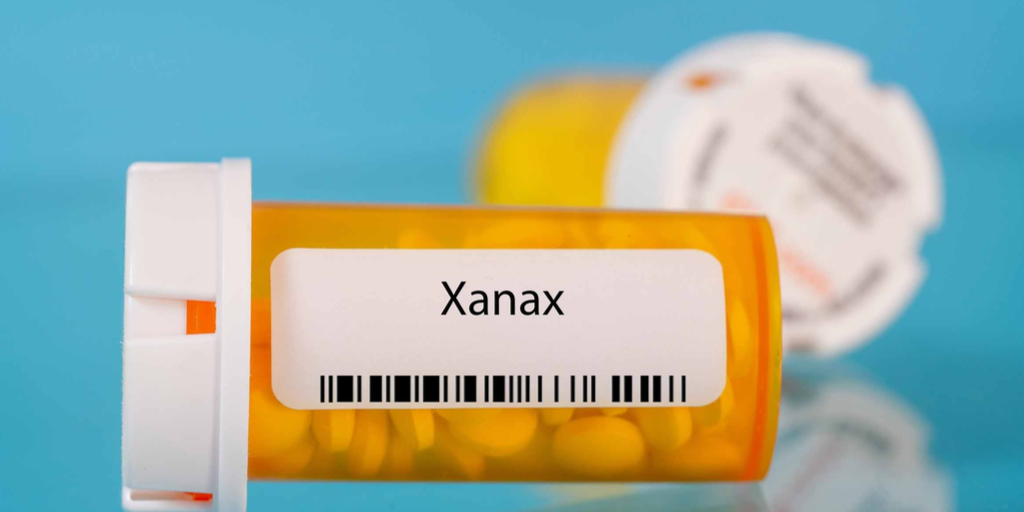Is Xanax Addictive? Signs, Symptoms, and Statistics of Xanax Addiction

Xanax is often prescribed to manage anxiety. The downside of this treatment is that the drug can be addictive. Patients who take Xanax can become both physically and psychologically dependent on the drug, which can lead to addiction.
The Risks Associated With Xanax
 Warnings placed on drug packaging by the FDA alert both doctors and the general public about drug effects that may be dangerous.
Warnings placed on drug packaging by the FDA alert both doctors and the general public about drug effects that may be dangerous.
The box warnings on Xanax include the following language:
- Taking benzodiazepines with opioid drugs increases your risk for severe sleepiness, respiratory depression, coma, and death.
- Xanax should not be taken with opioids unless there are no alternative treatment options available.
- Using benzodiazepines, even as prescribed by your physician, can lead to physical dependence and withdrawal symptoms. Do NOT stop taking this drug suddenly. Withdrawal can be life threatening.
- Taking this drug can also lead to misuse and addiction. Misuse and abuse of Xanax increases your risk of overdose and death.
- Only take this drug as prescribed by your physician. Talk with your healthcare provider if you have any concerns about the safety of this drug.
Xanax Abuse and Addiction
Benzodiazepines (benzos) are central nervous system (CNS) depressants. When taken as directed, Xanax relaxes the body’s muscles, eases restlessness, and soothes feelings of anxiety. It is the most popular prescription drug for treating general anxiety, panic disorders, and mood disorders associated with depression. Sometimes Xanax is prescribed off-label for the treatment of insomnia, but the side effects can be adverse.
Xanax is a controlled substance, and that means it has a high potential for abuse and addiction. But the medication is also used by a large number of addiction treatment centers to help treat symptoms of alcohol withdrawal.
There are two primary reasons that Xanax is particularly addictive:
- Xanax has a fast onset, meaning it quickly floods the brain with “feel good” neurotransmitters.
- Xanax is commonly prescribed for the treatment of mental health disorders, but people who struggle with anxiety are at a much higher risk of abusing drugs.
Related Data and Research
 Overdoses from benzodiazepines have increased at a much faster rate than prescriptions are written for them, which indicates people are taking them in riskier ways or buying them on the street more often.
Overdoses from benzodiazepines have increased at a much faster rate than prescriptions are written for them, which indicates people are taking them in riskier ways or buying them on the street more often.
The National Institute on Drug Abuse reported in 2021 that 1.4% of the U.S. population (3.9 million people) misused benzodiazepines in the past 12 months.
Reuters reported that prescriptions for benzodiazepines like Xanax tripled between 1996 and 2013, and fatal overdoses involving these drugs quadrupled during that same time period.
In 2023, there were 10,870 U.S. drug overdose deaths involving benzodiazepines.
A medical study found that young adults ages 18 to 29 reported the highest rates of benzodiazepine abuse. This age group tends to consume higher rates of alcohol, marijuana, ecstasy, and other intoxicating substances, meaning Xanax is likely to be mixed with various other drugs.
What Are the Side Effects of Xanax Abuse?
According to the FDA, benzodiazepines like Xanax should not be taken daily for more than two weeks at a time. This is because it’s easy to develop tolerance, dependence, and addiction to Xanax very quickly.
One troublesome side effect of Xanax abuse is something called “rebound symptoms.” This condition occurs when the symptoms that Xanax is supposed to relieve actually come back with increased severity. Rebound symptoms are triggered when someone suddenly stops taking Xanax.
The most common side effects of Xanax abuse include:
Physical Effects
- Relaxation
- Euphoria
- Shifts in mood
- Loss of interest in sex
- Dizziness
- Dry mouth
- Erectile dysfunction
- Fatigue
- Nausea
- Vomiting
- Lack of coordination
- Seizures
- Shortness of breath
- Slurred speech
- Tremors
Psychological Effects
- Inability to focus
- Mental confusion
- Problems with memory
- Decreased inhibitions
Addiction Treatment for Xanax Dependency
If you’re taking a higher dosage of Xanax than what you’ve been prescribed, if you find yourself craving the drug, or if you experience withdrawal symptoms in the absence of the drug, you may have developed an addiction. Seeking professional help at an evidence-based drug rehab center is essential for successfully treating Xanax dependency or addiction.
Available treatment options include:
- Detox and withdrawal
- Inpatient rehab
- Outpatient rehab
- Personal, group, or family therapy sessions
- Aftercare or sober living
- Alternative or holistic therapies
Find Xanax detox and rehab options near you with this convenient locator tool.


